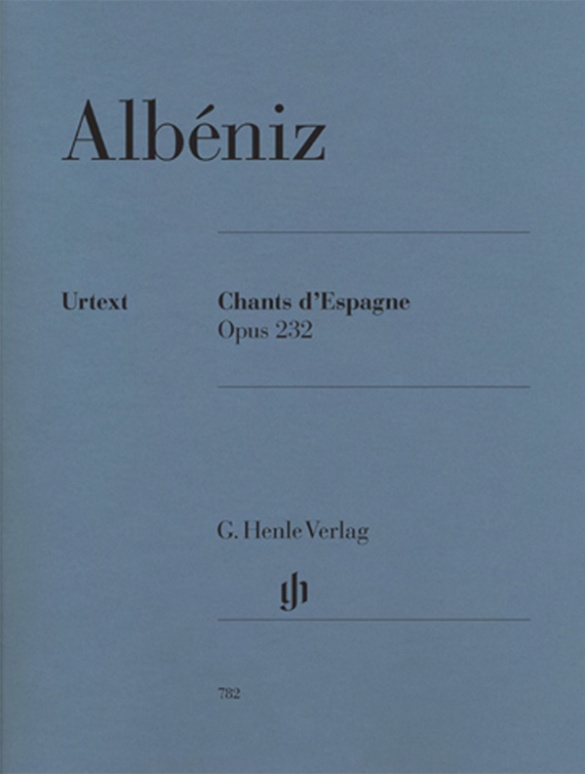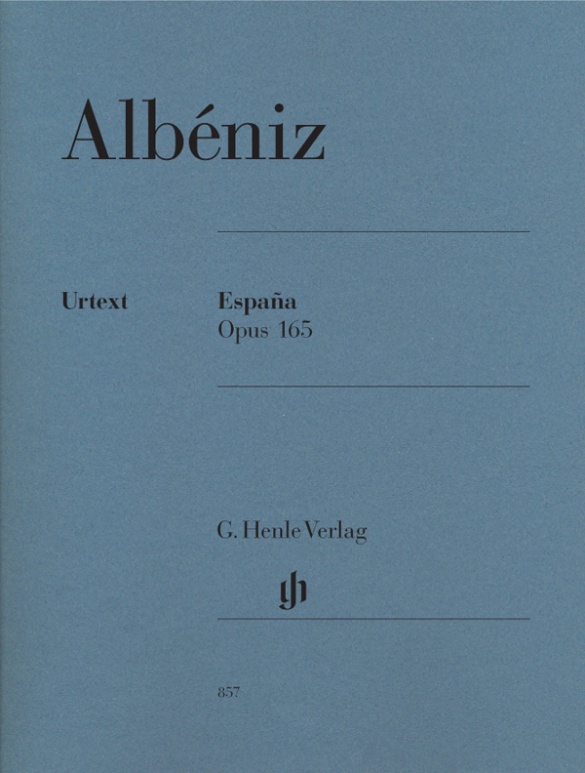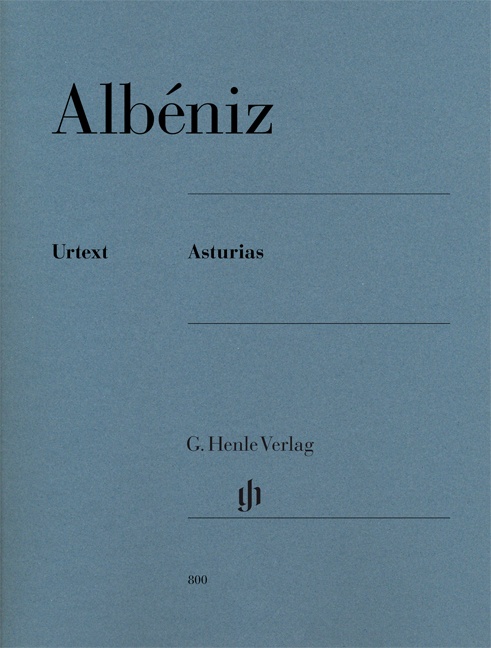Isaac Albéniz
Chants d'Espagne op. 232
Catalan piano virtuoso and composer Isaac Albéniz received his musical training under Liszt, Vincent d’Indy and Paul Dukas, among others. Today’s pianists mostly dedicate themselves to Albéniz’s extensive piano cycle “Iberia”, which he wrote towards the end of his life. The more attractive five-movement suite “Chants d’Espagne” op. 232, with movement titles such as “Sous le Palmier” [Under the palm tree] or “Córdoba”, was written in the 1890s. All the attributes of Albéniz the piano composer are present here: the form of the miniature-like character pieces, a richly coloured piano texture and the folksong sound with a Spanish flavour. The trade press has written about our Urtext edition with its detailed preface: “Henle’s editor, Ullrich Scheideler, works very precisely and clearly with regard to discrepancies and errors that evolved in previous generations. Rolf Koenen’s fingerings are balanced and intelligent.”
Content/Details
About the Composer
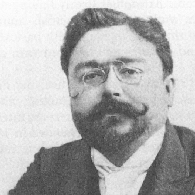
Isaac Albéniz
He numbers among the most important Spanish composers. His oeuvre consists predominantly of piano music and stage works.
| 1860 | Born in Camprodón (Gerona province) on May 29; soon thereafter his family moves to Barcelona; first piano instruction with his sister at age three and a half, first public performance at age five, subsequent piano studies with Narciso Oliveras. |
| from 1867 | Eventful youth due to concert tours with his father and sister to Paris, the Spanish provinces, then on his own to Puerto Rico and Cuba. |
| 1876–79 | Studies in Brussels. |
| 1883–86 | Studies composition in Barcelona with Felipe Pedrell, who persuades him of the value of Spanish folk music. This results in piano compositions such as “Recuerdos de viaje,” Op. 71 (1886–87); “España: Seis hojas de album,” Op. 165 (1890); “Cantos de España,” Op. 232 (1891–94). |
| 1889 | Breakthrough as a pianist, concertizing in Paris and London. |
| 1890–93 | Engaged in London by the agent Henry Lowenfeld; operetta “The Magic Opal” (premiere 1893). |
| 1893 | Relocation to Paris, studies with Vincent d’Indy and Paul Dukas. |
| 1895/96 | Premieres in Barcelona of his operas “Henry Clifford” (1895) and “Pepita Jiménez” (1896) with Spanish colorings in the libretti and music. |
| 1898–1903 | He plans the trilogy “King Arthur” (“Merlin,” “Lancelot,” “Guenevere”), of which just “Merlin” is completed; concert performance of the original version does not take place until 1998. |
| 1905–08 | Composes “Iberia,” one of his chief works for piano, in which he reworks the sounds and rhythms of Spanish folk music. |
| 1909 | Death in Cambô-les-Bains (Basses-Pyrénées) on May 18. |
About the Authors
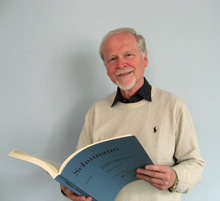
Rolf Koenen (Fingering)
As a pupil, Prof. Rolf Koenen, born in 1946 in Duisburg, had already had contact with Ewald Zimmermann, the first editor at the young publishing house. He studied the piano at the Folkwangschule in Essen with Detlef Kraus, with Ludwig Hoffmann in Munich and with Maria Tipo in Florence.
He gave concerts in a permanent duo partnership with Hansjörg Schellenberger, who was later to become the solo oboe player with the Berlin Philharmonic, and made several recordings with the Deutsche Grammophon-Gesellschaft, with Denon and Sony. Other chamber music partners included András Adorján, Stefan Dohr, Wolfgang Schulz, Claes H. Ahnsjö. Following a teaching position in Munich, Rolf Koenen was appointed as a professor at the Berlin University of the Arts in 1982.
Product Safety Informations (GPSR)

G. Henle Verlag
Here you can find the information about the manufacturer of the product.G. Henle Verlag e.K.
Forstenrieder Allee 122
81476 München
Germany
info@henle.de
www.henle.com
Albeniz allie la perfection des éléments folkloriques de son pays natal à un brio empreint de virtuosité, le tout lié intimement à une palette impressionnante. Désormais, tous les pianistes disposent d’un texte musical répondant aux critères d’une édition Urtext.
Crescendo, 2006Henle punta l’attenzione su Albéniz e alla pubblicazione di Iberia, di cui però finora è uscito solo il primo fascicolo dei quattro, affianca quella di Chants d’Espagne op. 232, una raccolta di cinque composizioni dalla genesi piuttosto eterogenea. … Perduti gli autografi, le fonti principali sono la prima edizione, per i tipi Pujol di Barcellona, e una successiva per Unión Musical Española pubblicata dopo il 1914. Questa nuova Urtext, con un apparato critico che segnala le discordanze fra le diverse versioni, è curata da Ullrich Scheideler.
Giornale della musica, 2005With a penchant for multi-stacked accidentals in key signatures and a tendency in faster movements to pile on the rapid passagework, Albéniz’s music certainly needs the most sympathetic and lucid of editions. Happily, this new volume, containing some of the composer’s most celebrated morceaux, satisfies in a way that earlier editions singularly failed to. … Henle’s editor, Ullrich Scheideler, is especially precise and lucid with regard to the possible conflicts and mistakes that have arisen down the generations in these works, whilst Rolf Koenen’s fingering for the most part is extremely balanced, uncontroversial and intelligent.
Sheet Music, 2005recommendations
autogenerated_cross_selling
Further editions of this title


